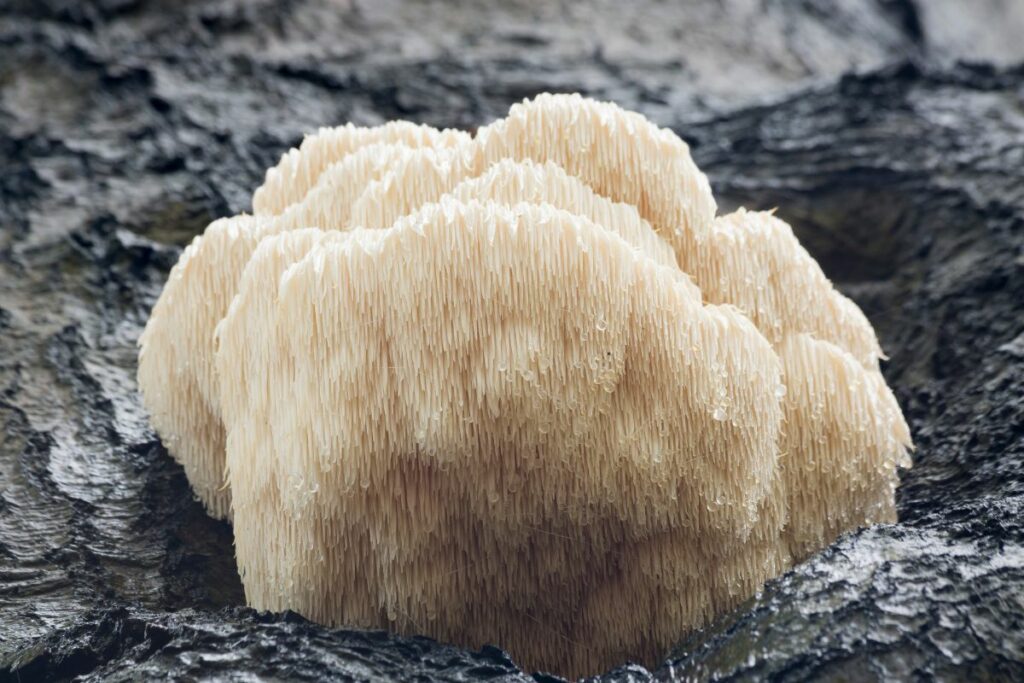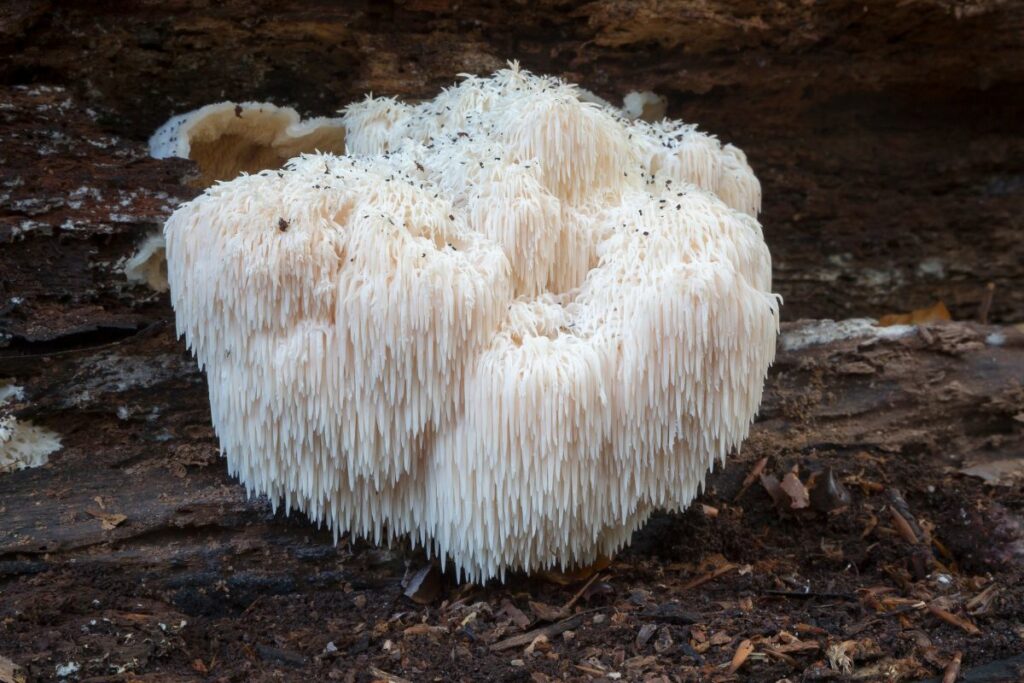Lion’s mane is a unique mushroom that has gained popularity for its potential cognitive health benefits. Many individuals seeking to improve their memory, focus, and overall brain health have turned to this remarkable fungus as a natural alternative to pharmaceuticals. One frequently asked question when it comes to using lion’s mane is the time it takes to notice its effects.
The duration for lion’s mane to exhibit noticeable benefits may vary among individuals due to factors such as dosage, personal physiology, and the product’s quality. While some people may experience improvements in cognitive functions within just a few weeks, others might take longer to observe tangible results. It is essential to consider these variations, remain patient, and maintain consistency when supplementing with lion’s mane.
It is crucial to use a high-quality lion’s mane product to obtain the most effective outcomes. Furthermore, consulting a healthcare professional before starting any supplementation, especially in cases with pre-existing medical conditions or medications, is highly recommended to ensure safety and effectiveness.
Understanding Lion’s Mane
Table of Contents
| Characteristic | Description |
|---|---|
| Scientific Name | Hericium erinaceus |
| Common Names | Lion’s Mane Mushroom, Bearded Tooth Mushroom, Pom Pom Mushroom |
| Appearance | Distinctive white, shaggy, and tooth-like spines resembling a lion’s mane |
| Edibility | Edible and highly prized for its unique taste and texture |
| Culinary Uses | Often sautéed, grilled, or used in soups and stir-fries; likened to seafood in flavor |
| Nutritional Value | Low in calories, rich in protein, dietary fiber, and various vitamins and minerals |
| Medicinal Benefits | Potential for cognitive support, nerve regeneration, immune system enhancement, and anti-inflammatory properties |
| Cultivation | Can be cultivated on hardwood logs, sawdust, or supplemented substrates |
| Traditional Use | Used in traditional Chinese medicine for its potential health benefits |
| Availability | Can be found in the wild, but also available in some markets and as supplements |
Lion’s Mane, also known as Hericium erinaceus, is a type of medicinal mushroom commonly used in traditional Chinese medicine. The fungi gets its name from its unique appearance, which resembles the mane of a lion. Known as Yamabushitake in Japan, it has been used for centuries to promote overall health and well-being.
The Lion’s Mane mushroom contains bioactive compounds that have various health benefits, including supporting cognitive function and improving the immune system. It also possesses anti-inflammatory and antioxidant properties. Due to these potential benefits, Lion’s Mane has gained popularity as a natural supplement, particularly for supporting brain health.
When it comes to determining how long Lion’s Mane takes to work, it’s essential to understand that individual experiences may vary. Factors such as dosage, quality of the supplement, and personal body chemistry can influence the time it takes to notice any effects. However, some people report feeling the benefits of Lion’s Mane within a few hours, while others may need a few weeks of consistent use. It’s crucial to follow the recommended dosage and consult with a healthcare professional before starting any new supplement regimen.
While many people have reported positive experiences with Lion’s Mane, more research is needed to fully understand its potential effects. Some studies have demonstrated the mushroom’s ability to help with focus and concentration, while others have identified compounds that may contribute to overall neurological health.
In conclusion, Lion’s Mane is a fascinating medicinal mushroom with a long history in traditional Chinese medicine. Its potential health benefits, particularly for cognitive function, make it an increasingly popular natural supplement choice. As with any supplement, it’s important to consult with a healthcare professional and consider individual factors when determining how long it may take to notice its effects.
Potential Health Benefits of Lion’s Mane
| Health Benefit | Description |
|---|---|
| Cognitive Support | Potential to improve cognitive function and memory |
| Nerve Regeneration | May stimulate nerve growth and repair |
| Immune System Enhancement | Can boost the body’s immune response |
| Anti-Inflammatory Effects | May reduce inflammation and related conditions |
| Antioxidant Properties | Combat oxidative stress and free radical damage |
| Digestive Health | Promotes gastrointestinal health and digestion |
| Anxiety and Depression | Potential to reduce symptoms and improve mood |
| Neurological Disorders | Investigated for potential benefits in conditions like Alzheimer’s and Parkinson’s |
| Cardiovascular Health | May support heart health and reduce risk factors |
| Blood Sugar Regulation | May help regulate blood sugar levels |
Lion’s Mane, a unique mushroom with its shaggy appearance, has been used in traditional medicine for centuries and is now gaining popularity as a nootropic supplement. Its potential health benefits are vast and cover various aspects of human wellness.
One of the primary benefits of Lion’s Mane is its potential to improve cognitive function. It has been suggested to enhance memory, focus, and mental clarity by promoting the production of nerve growth factor (NGF), which is essential for the health and maintenance of neurons in the brain. Additionally, Lion’s Mane may provide support to the immune system and contribute to overall health.
Research indicates that this remarkable mushroom may also have positive effects on mood and mental health. It has been observed to have potential antidepressant and anti-anxiety properties, possibly due to its influence on brain-derived neurotrophic factor (BDNF), a critical protein involved in maintaining healthy mood and emotional balance.
Another notable benefit of Lion’s Mane is its potential impact on gut health and digestion. The mushroom contains bioactive compounds that may help promote the growth of beneficial bacteria in the gut, supporting overall digestion and preventing gut-related issues.
Apart from its cognitive and gut health benefits, Lion’s Mane also holds promise in supporting the body’s defense against cancer. Some studies have shown that the mushroom contains compounds that may exhibit anticancer properties, although more research is needed to validate these findings conclusively.
Incorporating Lion’s Mane into daily wellness routines may result in increased energy and vitality. Its potential adaptogenic qualities may help the body better manage stress, further contributing to overall mental and physical well-being.
In conclusion, Lion’s Mane is a powerful nootropic with numerous potential health benefits spanning cognitive function, mood, immune system support, digestion, and more. Its versatility and efficacy make it an attractive option for those seeking to enhance their wellness and maintain optimal overall health.
How Lion’s Mane Works

Lion’s mane is a mushroom known for its potential brain-boosting properties. Its effectiveness is attributed to specific bioactive compounds like erinacines and hericenones, which are present in the mushroom. When ingested, these compounds have been known to support nerve cells and brain cells functions.
One significant effect of lion’s mane lies in its ability to stimulate the production of nerve growth factor (NGF). NGF promotes neurogenesis, the process of creating new neurons. It plays a vital role in the growth, maintenance, and regeneration of nerve cells. This effect is particularly important for maintaining healthy brain function and improving cognitive abilities.
Another aspect of lion’s mane is its powerful anti-inflammatory properties. Inflammation is a natural process in the body, but excessive inflammation can lead to various health issues, including neurodegenerative disorders. By reducing inflammation in the brain, lion’s mane can help protect against damage to brain cells and aid in overall brain health.
Lion’s mane also supports the regeneration of nerve cells. When nerve cells are damaged, they can regenerate and repair themselves to some extent. The bioactive compounds in lion’s mane are thought to stimulate this process, which may contribute to its positive effects on cognitive function and overall brain health.
In summary, lion’s mane works through a combination of promoting nerve growth factor production, exerting anti-inflammatory effects, and supporting the regeneration of nerve cells. These properties make it a promising natural supplement for maintaining and improving brain health.
Lion’s Mane Supplementation
Lion’s mane mushrooms have gained popularity as a dietary supplement due to their potential health benefits. They are available in various forms, such as capsules, powders, and even as a whole mushroom for culinary purposes.
When considering a lion’s mane supplement, users will come across different forms like capsules and powders. It is essential to choose a high-quality supplement from a reputable source to ensure effectiveness and safety. The supplement form may depend on an individual’s personal preference and ease of use.
The dosage of lion’s mane supplementation may vary based on the specific product and an individual’s needs. It is crucial to follow the recommended dosage provided by the supplement manufacturer. Generally, a daily dose of 500 mg to 3,000 mg of lion’s mane extract is considered safe and effective for most people. It is always a good idea to consult with a healthcare professional before starting any new dietary supplement.
Lion’s mane mushrooms have been attributed to promoting cognitive function, supporting nerve growth, and providing antioxidative properties. The duration in which it takes for the effects of lion’s mane supplementation to become noticeable may vary from person to person. Factors such as age, overall health, and the specific condition the user desires to address may contribute to the time it takes for lion’s mane to work.
Incorporating lion’s mane into a daily routine can be relatively easy. For those using capsules or powders, they can be taken with meals or as recommended by the manufacturer. Regular and consistent use of lion’s mane supplements may increase the chances of experiencing the desired effects.
It is essential to remember that while lion’s mane supplementation may provide several benefits, results and timeframes can vary among individuals. Maintaining a healthy diet and lifestyle, in addition to supplementing with lion’s mane, can support overall well-being.
Research and Studies on Lion’s Mane

Lion’s Mane, a medicinal mushroom, has garnered attention due to its potential cognitive and health benefits. Numerous studies have delved into understanding its efficacy and how long it takes to work.
In animal studies, Lion’s Mane has shown promising results. A research on mice demonstrated that Lion’s Mane extract improved cognitive functions and had neuroprotective effects. Similarly, a study on rats indicated that the mushroom could promote nerve growth and enhance memory.
However, research on human subjects is limited. A study involving older adults with mild cognitive impairment revealed that Lion’s Mane supplementation for 16 weeks led to significant improvements in cognitive functions. Another small-scale study indicated that Lion’s Mane provided modest benefits in reducing anxiety and depression.
While these research findings are promising, it is important to note that the time it takes for Lion’s Mane to work can vary depending on multiple factors such as dosage, individual physiology, and the form of Lion’s Mane consumed (e.g., supplement, powder, or whole mushroom).
To date, there is no definitive timeline for Lion’s Mane effects; however, some studies suggest that benefits may be observed within a few weeks to months of consistent use. Further research is needed to establish a concrete timeline for Lion’s Mane efficacy in humans.
In conclusion, the existing evidence from animal studies and limited human trials suggests that Lion’s Mane has potential cognitive and health benefits. However, more extensive research is needed to determine its precise efficacy and understand how long it takes to work in humans.
Side Effects and Precautions
Lion’s Mane mushroom is generally considered safe for consumption, with few reported side effects. However, some individuals may experience mild side effects such as digestive discomfort. It is essential to be aware of these potential reactions and monitor one’s body when starting any new supplement.
Allergic reactions, although rare, can occur in some people. The symptoms may range from rashes or hives to more severe breathing difficulties. If you notice any signs of an allergic reaction, discontinue the use of Lion’s Mane immediately and consult your healthcare provider.
When it comes to medications, Lion’s Mane mushroom is not known to have significant interactions with most medications. Still, it is always a good idea to discuss potential supplement use with your healthcare provider, particularly if you are taking prescription medications or have pre-existing medical conditions.
People with known allergies to mushrooms or other fungi should exercise caution when considering Lion’s Mane supplementation. Cross-reactivity among fungi is possible, and it may cause allergic reactions in some individuals. Therefore, it is best to consult with your healthcare provider to assess your risk.
In conclusion, while Lion’s Mane mushroom is generally safe and well-tolerated, it is important to be aware of potential mild side effects or allergic reactions. Always speak with a healthcare professional before starting any new supplement, particularly if you have pre-existing conditions or are taking medications. Remember to consume Lion’s Mane in moderation and listen to your body’s response, adjusting as needed to ensure a safe and beneficial experience.
Lion’s Mane and Cognitive Impairment

Lion’s Mane is a type of mushroom that has gained attention for its potential cognitive benefits. Research has shown that Lion’s Mane can be helpful in addressing cognitive decline and improving brain health, particularly for individuals with mild cognitive impairment, dementia, and Alzheimer’s disease.
One study found that dietary supplementation with Lion’s Mane powder improved cognitive function in adults with mild cognitive impairment. This improvement might be attributed to the mushroom’s neuroprotective properties, which are thought to stimulate the production of nerve growth factors and encourage the formation of new neurons.
Lion’s Mane has also been studied for its role in reducing inflammation in the brain, which can contribute to cognitive decline. A study on ADHD suggests that by reducing inflammation, Lion’s Mane mushroom can potentially improve focus and concentration, making it a possible aid in addressing cognitive impairments related to attention disorders.
While the potential benefits of Lion’s Mane for cognitive impairment are promising, it is important to remember that more research is needed to fully understand its effects. Currently, the duration for optimal results from Lion’s Mane supplementation can vary depending on the individual and the severity of their cognitive decline. In some cases, benefits may be observed within weeks, while others might require sustained use over months.
In conclusion, Lion’s Mane holds potential as a natural supplement to support brain health and cognitive function, especially in individuals with mild cognitive impairment, dementia, and Alzheimer’s disease. However, further research and trials are necessary to establish its efficacy and determine optimal dosages and durations for treatment.
Lion’s Mane and Mood Disorders
Lion’s Mane (Hericium erinaceus) is a medicinal mushroom known for its potential benefits to cognitive health and mental well-being. Preliminary research suggests that Lion’s Mane may help alleviate symptoms of mood disorders, such as anxiety and depression, supporting overall mental health.
Lion’s Mane contains compounds called hericenones and erinacines, which are believed to stimulate the production of nerve growth factor (NGF) in the brain. NGF is crucial for the maintenance and growth of neurons, and it plays a significant role in various cognitive functions. By enhancing NGF levels, Lion’s Mane may contribute to better cognitive performance, mood regulation, and overall mental health.
In a study involving adults who consume microdoses of psychedelics, participants reported lower levels of anxiety and depression compared to non-microdosers. While this study focused on psychedelic use, there is a growing interest in utilizing natural supplements, such as Lion’s Mane, as complementary therapies for managing mood disorders.
A dietary supplement derived from a chlorella and Lion’s Mane mushroom complex has shown potential antidepressant effects in aged SAMP8 mice. This finding indicates that such supplements might provide similar benefits to humans when used as part of a holistic approach to mental health care.
It’s worth noting that while there is a growing body of evidence suggesting the potential benefits of Lion’s Mane for mood disorders, more comprehensive research is needed to confirm its efficacy and determine optimal dosages for different individuals. As always, it’s essential to consult a healthcare professional before starting any new supplement regimen, especially when dealing with mental health concerns.
Lion’s Mane and Immune System
Lion’s mane mushrooms are known for their potential impact on cognitive function and nerve health. These fascinating fungi may also provide benefits for the immune system due to their unique nutrient profile. The positive effects of lion’s mane on the immune system are attributed to various properties, such as anti-inflammatory and antioxidant capabilities.
Inflammation is a natural response of the immune system to protect the body from infections or injuries, but chronic inflammation can cause health problems. Incorporating lion’s mane into one’s diet may help regulate inflammation and ease the burden on the immune system. Additionally, the antioxidant components in lion’s mane assist in protecting cells from damage caused by free radicals. This cellular damage can lead to a variety of health issues, including heart disease and stroke.
Studies have shown that lion’s mane may stimulate the production of specific proteins that play a crucial role in regulating the immune system. Furthermore, some research suggests that this mushroom may possess a unique ability to reduce the over-activation of the immune response – a common issue in autoimmune diseases, where the immune system mistakenly attacks healthy cells.
The positive impact of lion’s mane on the immune system is not limited to inflammation and antioxidant properties. Other benefits may include potential protection against heart disease and stroke, both of which are heavily linked to a weakened immune system. By promoting a balanced and healthy immune response, lion’s mane may help reduce the risk of these life-threatening conditions.
While more research is needed to fully understand the extent of lion’s mane’s influence on the immune system, incorporating this mushroom into a healthy diet may provide numerous health benefits. Whether consumed as a supplement or included in meals, lion’s mane shows promising potential in supporting a robust and well-functioning immune system.
Lion’s Mane and Metabolic Disorders
Lion’s Mane mushroom has recently gained popularity for its potential benefits in the treatment of metabolic disorders. Diabetes, cholesterol, fatigue, and insulin resistance are some common conditions that could benefit from Lion’s Mane. Additionally, its effects on weight loss and inflammation make it a potential aid for those suffering from arthritis.
Research shows that Lion’s Mane contains compounds that may have α-glucosidase inhibitory effects, which can help regulate blood sugar levels. This could be particularly beneficial for individuals with diabetes, as it may assist in maintaining a healthy glucose metabolism.
Moreover, Lion’s Mane has been found to improve lipid metabolism, helping to reduce triglyceride levels in the body. Balanced cholesterol levels are vital for cardiovascular health, making Lion’s Mane a potentially valuable addition to a heart-healthy diet.
Fatigue can be a common symptom of metabolic disorders, and Lion’s Mane might help alleviate this issue. Although research on this topic is limited, anecdotal evidence suggests that individuals who regularly consume Lion’s Mane may experience increased energy and mental clarity.
Weight loss is another area where Lion’s Mane may be beneficial. Although there is no direct evidence to support this claim, it is thought to improve metabolism, which could consequently aid in weight management.
Lastly, its anti-inflammatory properties could be beneficial for those with arthritis. While there is limited research available on this specific subject, the overall anti-inflammatory and immune-boosting effects of Lion’s Mane might contribute to alleviating arthritis symptoms.
In conclusion, Lion’s Mane shows promise in helping to manage various aspects of metabolic disorders. Further in-vivo studies are needed to confirm these findings and provide a better understanding of its potential health benefits.
Lion’s Mane and Dietary Considerations
Lion’s mane is a type of edible mushroom that has been gaining popularity for its potential health benefits. Available in various forms such as fresh, organic, dried, and dietary supplements, it is essential to consider the dietary implications of incorporating this mushroom into one’s diet.
When consumed as a fresh or organic food, lion’s mane offers a unique flavor and texture. Some people might prefer to use dried lion’s mane due to its longer shelf life and convenience. Dried lion’s mane can easily be rehydrated and added to various dishes, making it a versatile option for those who are interested in incorporating this nutritious mushroom into their diet.
In addition to fresh and dried forms, lion’s mane can also be consumed as a dietary supplement. These supplements are available in various forms, including capsules, powders, and extracts, providing an even more convenient way for individuals to incorporate the benefits of lion’s mane into their daily routine. However, it is essential to select a high-quality supplement to ensure that the product is free from contaminants and provides the desired health benefits.
As with any dietary change, it is crucial to consider potential side effects and interactions with other medications when incorporating lion’s mane into one’s diet. Although lion’s mane is generally considered safe for most individuals, some people might experience mild digestive discomfort. In some cases, this mushroom has been reported to aggravate ulcers or other digestive issues. It is always advisable to consult with a healthcare professional before starting any new dietary supplement, particularly for individuals with pre-existing medical conditions.
In conclusion, incorporating lion’s mane into one’s diet can provide numerous health benefits. Available in various forms, such as fresh, organic, dried, and dietary supplements, individuals can choose the best option suitable for their dietary preferences and lifestyle. However, it is essential to consider potential side effects and consult with a healthcare professional before making any significant dietary changes involving lion’s mane.
Frequently Asked Questions
How soon can I expect results from Lion’s Mane?
It may vary for individuals, but generally, it may take a few weeks before noticing the benefits of Lion’s Mane supplementation. In some cases, users have reported improvements in cognitive function and memory within as little as two weeks of regular consumption.
What is the recommended daily dosage of Lion’s Mane?
The recommended daily dosage of Lion’s Mane can vary depending on the product, its potency, and the consumer’s personal needs. It is essential to follow the manufacturer’s instructions on the label or consult a healthcare professional for personalized advice.
Can Lion’s Mane provide an energy boost?
Though Lion’s Mane is primarily known for its cognitive benefits, some users report an increase in physical energy levels and stamina. However, it’s important to note that individuals may react differently to the supplement.
Are there any side effects of Lion’s Mane?
Lion’s Mane is generally considered safe and well-tolerated. However, some individuals may experience mild side effects, such as gastrointestinal discomfort or allergies. It is always recommended to consult a healthcare professional before starting any new supplement regimen, especially if you have any pre-existing health conditions.
How does Lion’s Mane affect one’s mood?
Lion’s Mane may have positive effects on mood by supporting the production of nerve growth factors, which can help maintain healthy brain and nervous system function. It has been suggested that it may alleviate symptoms of anxiety and depression, but more research is needed to confirm these effects.
Is regular intake of Lion’s Mane necessary for effectiveness?
For optimal benefits, it is recommended to consume Lion’s Mane regularly. Consistent supplementation may help maintain and improve cognitive function, memory, and overall brain health. It is essential to follow the recommended dosages and consult a healthcare professional for personalized guidance on long-term use.







